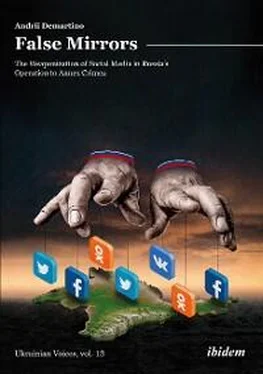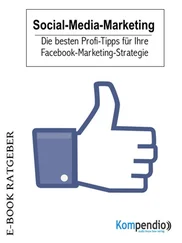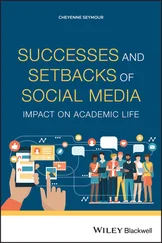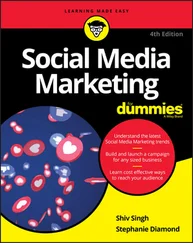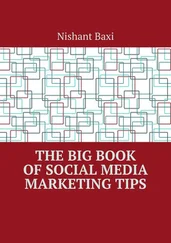ibidem-Press, Stuttgart
Contents
Foreword Foreword The attempt to annex Crimea and Russia’s military invasion of eastern Ukraine in 2014 have become an unprecedented challenge to the global security system, an act of open aggression against a sovereign state. Being the result of the implementation of aggressive foreign policy strategies by the leadership of the Russian Federation, these events were certain to attract the close attention of scientists and researchers in various fields. For the first time since the end of World War II, the leadership of one of the countries in Europe has planned and conducted a full-scale military operation based on modern principles of warfare. As the use of nuclear weapons is becoming increasingly problematic, the confrontation will gradually but steadily focus on information and cyberspace, space and biotechnology. The techniques for information and psychological influence as part of a new type of hybrid warfare pose a particular danger, which has been clearly demonstrated in Crimea and parts of the Donetsk and Luhansk regions. Modern challenges require an adequate response. The research of the author of “The False Mirror” on the role of social media in the Russian operation to attempt the annexation of Crimea will help to devise such countermeasures. The value of this study lies in the author’s focus on analysing real facts and reconstructing the sequence of events, which are looked at in the context of information warfare, one of the important elements of which is the use of social media. The book examines the specific techniques and methods of using popular social media by Russian intelligence agencies before, during, and after the temporary occupation of Crimea. Using modern channels of communication, Russian special services distorted the events, falsified information, and created a favourable information environment for the military operation. The study highlights the danger of the information component of warfare and emphasises the obligation of the state to be prepared, both technologically and organisationally, to resist hostile information influence. The materials collected and analysed by the author have not only historical value: the book contains practical recommendations for countering information and influence operations, which can be used in government decision-making. Oleksiy Danilov Secretary of the National Security and Defence Council of Ukraine Kyiv, April 2021
Abstract Abstract The thesis about the importance of the information component as one of the key elements of the so-called new-type warfare became generally accepted after the annexation of Crimea and the occupation of the parts of the Donetsk and Luhansk regions by the Russian Federation in 2014. At the same time, studies in this field often rely on rather limited sources, tend to use overly theoretical approaches, and repeat the same facts and conclusions. Consequently, a wide range of practical techniques and methods of Russian information influence have not received sufficient attention. This study investigates the techniques of using social media to fulfil aggressive foreign policy tasks, as exemplified by the Russian Federation’s operation to annex the AR of Crimea in 2014. Analysing the level of information effectiveness of the “Crimean operation,” it is worth noting the synergy effect produced by combining the use of social media with the broader Russian anti-Ukrainian propaganda campaign. In this case, social media, which were trusted, and where the information received from other sources (primarily television) was verified, have played the role of a “false mirror,” which falsified the information. That, in turn, has produced the effect of double manipulation, via television and social media, thus creating the environment of lies. Based on the analysis of the techniques for Russia’s information influence, this study offers effective countermeasures, which may be taken into consideration when formulating the national information policy in Ukraine and other states. Keywords: the Autonomous Republic of Crimea, the AR of Crimea, annexation, social media, the Russian Federation, hybrid warfare, new-type warfare, information operations, information influence, fakeaccounts.
Introduction
1. Background
1.1. Articles, News Items, Blogs
1.2. Western Studies
1.3. Ukrainian Studies
1.4. The “Ideological Problem” of Russian Historiography
2. The Crimean Internet in Figures: 2011-2014
3. The Russian “Information Warfare Machine” The Main Actors
4. Russia’s Activity The Channels of Information Influence (October–December 2013)
4.1. Internet Forums
4.2. The GRU and Facebook
4.3. The Twitter of “Crimean Events”
4.4. The Blocking of Facebook
4.5. The Nationwide Anti-Ukrainian Campaign in Russia: The Crimean Dimension
5. The Ukrainian Response Countermeasures Against Foreign Information Influence
Conclusions
References
Appendix
Short Biography of the Author
The attempt to annex Crimea and Russia’s military invasion of eastern Ukraine in 2014 have become an unprecedented challenge to the global security system, an act of open aggression against a sovereign state. Being the result of the implementation of aggressive foreign policy strategies by the leadership of the Russian Federation, these events were certain to attract the close attention of scientists and researchers in various fields. For the first time since the end of World War II, the leadership of one of the countries in Europe has planned and conducted a full-scale military operation based on modern principles of warfare.
As the use of nuclear weapons is becoming increasingly problematic, the confrontation will gradually but steadily focus on information and cyberspace, space and biotechnology. The techniques for information and psychological influence as part of a new type of hybrid warfare pose a particular danger, which has been clearly demonstrated in Crimea and parts of the Donetsk and Luhansk regions.
Modern challenges require an adequate response. The research of the author of “The False Mirror” on the role of social media in the Russian operation to attempt the annexation of Crimea will help to devise such countermeasures. The value of this study lies in the author’s focus on analysing real facts and reconstructing the sequence of events, which are looked at in the context of information warfare, one of the important elements of which is the use of social media.
The book examines the specific techniques and methods of using popular social media by Russian intelligence agencies before, during, and after the temporary occupation of Crimea. Using modern channels of communication, Russian special services distorted the events, falsified information, and created a favourable information environment for the military operation.
The study highlights the danger of the information component of warfare and emphasises the obligation of the state to be prepared, both technologically and organisationally, to resist hostile information influence. The materials collected and analysed by the author have not only historical value: the book contains practical recommendations for countering information and influence operations, which can be used in government decision-making.
Oleksiy Danilov
Secretary of the National Security
and Defence Council of Ukraine
Kyiv, April 2021
The thesis about the importance of the information component as one of the key elements of the so-called new-type warfare became generally accepted after the annexation of Crimea and the occupation of the parts of the Donetsk and Luhansk regions by the Russian Federation in 2014. At the same time, studies in this field often rely on rather limited sources, tend to use overly theoretical approaches, and repeat the same facts and conclusions. Consequently, a wide range of practical techniques and methods of Russian information influence have not received sufficient attention.
Читать дальше
